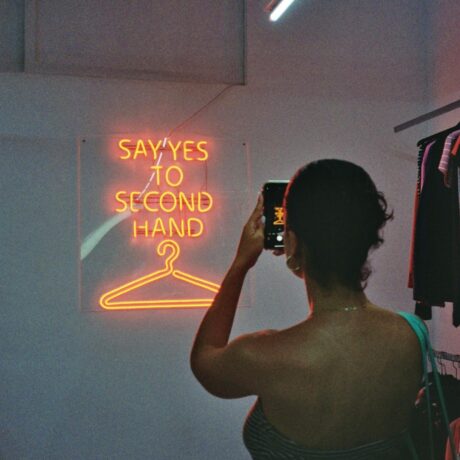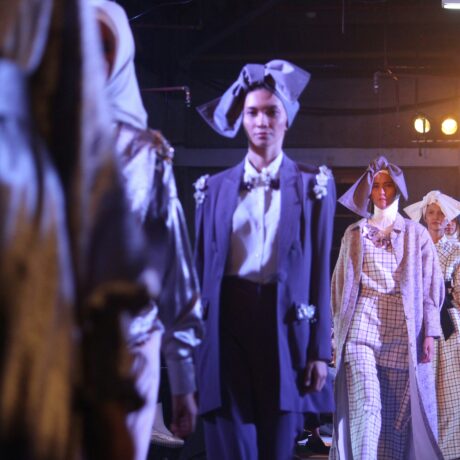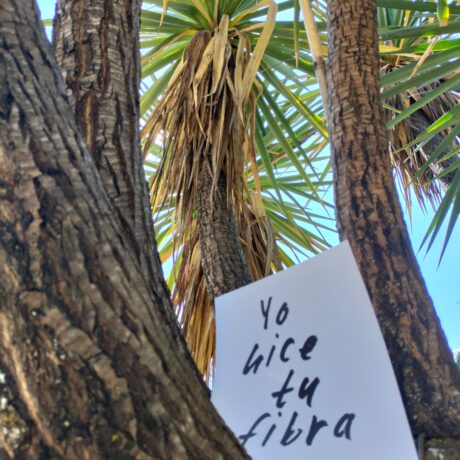Fashion Revolution Week 2020 Around the World: Special Projects
The Fashion Revolution Global Network is made up of 90 teams across five continents most of which are entirely voluntary. Each year for Fashion Revolution Week these teams activate the campaign in their country through unique events, projects and activism.
In 2019 we successfully piloted a Fashion Revolution Week grant fund to support a group of country teams to develop creative responses to the global campaign and this year we continued this fund. Six teams in the Global Network created unique projects and campaigns to strengthen their Fashion Revolution Week programme. Due to the impact of Covid-19 all projects, events and activities took place through digital formats and as a result many of which are still available to view online!
Cambodia
In Cambodia the team put together a full week of programming focused on involving and including individuals and groups from across the fashion industry. Their aim was to use Fashion Revolution Week as a catalyst for longer term collaboration with partners and the Fashion Revolution community in Cambodia.
The week kicked off in partnership with Nerd Night Phnom Penh which gathered creative thinkers and industry professionals together for a series of quick fire talks and provocations on the fashion industry. A partnership with Asia Foundation and Better Factories Cambodia took us behind the scenes of Cambodia’s garment factories to understand the different roles and experiences. An #IMadeYourClothes content series with local producers, suppliers and brands took us behind the scenes and explained the impact of coronavirus on the people who make our clothes. Citizens contributed #Lovedclotheslast stories and brands and producers based in Cambodia answered #WhoMadeMyClothes.
The keynote event was online forum – the Future of Fashion in Cambodia – with panellists from across the industry including: Athit Kong of the Coalition of Cambodian Apparel Workers Democratic Union, William Conklin of Solidarity Center, James Bartle founder of Outland Denim , Peter Ford who works in Environmental Sustainability for H&M in Cambodia and Vietnam and Kim van der Weerd, the former general manager of a Cambodia garment factory. The aim of this forum is to envision a safe, clean, fair fashion industry in Cambodia.
Greece
In Greece the team brought Raise Your Voice, a three day arts and culture festival, into the digital realm. The festival focuses on raising awareness of human trafficking and Fashion Revolution Greece programmed a series of webinars, digital panel discussions and responses from artists and fashion designers explore the connections between the fashion industry, human trafficking and climate change.
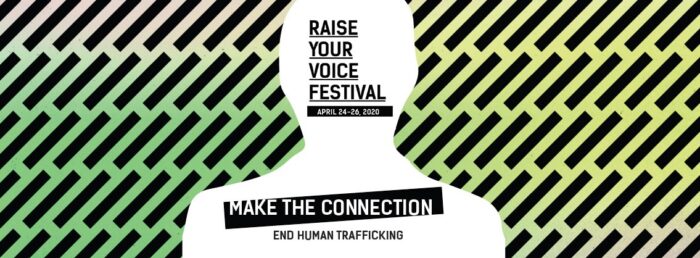
A series of sustainable designer studio talks, tutorials and demonstrations showcased a range of responses and solutions from the local fashion industry to the combined challenges of climate change and human rights abuses. Artists responded to a open call around the festival’s theme ‘Make the Connection’ and their submissions were exhibited online and theatre-makers and dancers produced creative responses through the ‘On Stage’ section of the festival.
A keynote roundtable discussion brought together the Minister for the Environment and Energy with Maison Faliakos and a group of industry experts to discuss the potential for circular fashion to address the current environmental impact of the fashion industry.
Germany
Fashion Revolution Germany and their sister organisation future fashion forward created a satirical webshop at the centre of a campaign entitled CRISIS FASHION. The campaign satirises the marketing and e-commerce methods of fast fashion brands to draw attention to the impact of Covid-19, especially the seamstresses in the hard hit production countries.
In the fictive webshop crisis.future.fashion the customer can supposedly buy a white T-shirt for only 50 cents. As soon as you interact with it, however, the shop disintegrates and reveals the actual message of the campaign – information about the current situation of factory workers, including three worker’s voice from Bangladesh, and points out options for sustainable action. Instead of buying a T-shirt, we share the opportunity to support an emergency relief fund and other charitable organizations with a donation, thus contributing to the fight against inhumane conditions.
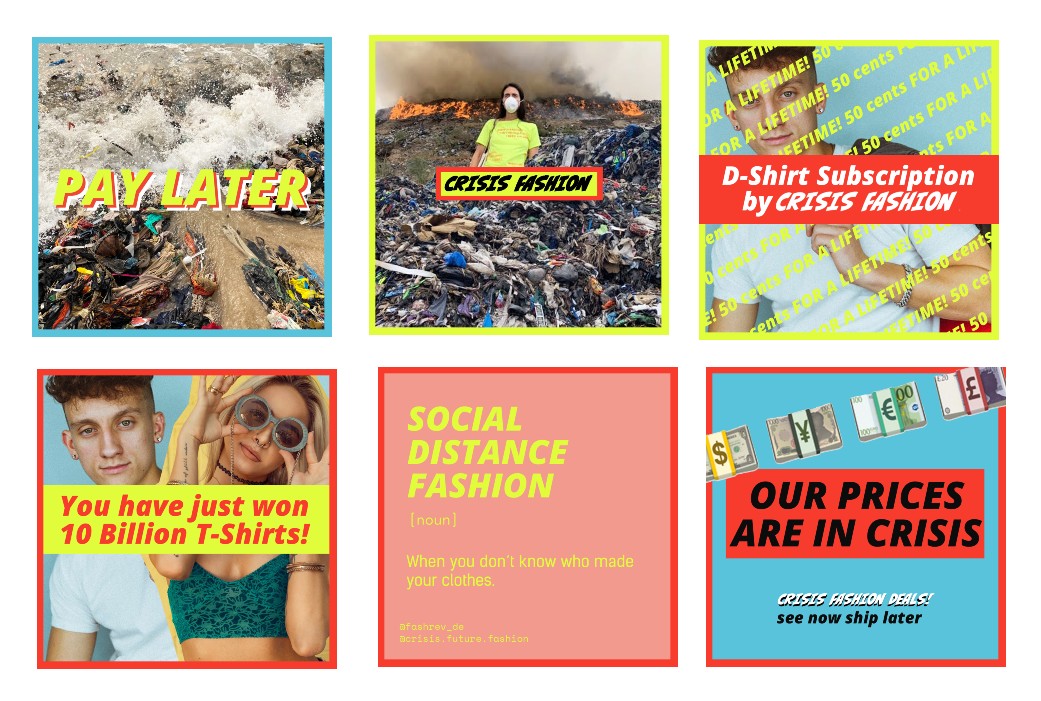
50 Cent T-Shirt Shop aims to shake up young consumers and call for action. The CRISIS FASHION fictive webshop launched on 22 April accompanied by an online campaign with memes and slogans such as “Social Distance Fashion – When you don’t know who made your clothes” and “You have just won 10 Billion T-Shirts!
This campaign is a further development of the successful campaign “The 2 Euro T-Shirt – A Social Experiment” , where a vending machine with a 2 Euro T-Shirt in the middle of Alexanderplatz in Berlin drew attention to the abuses in the fashion industry. You can participate by visiting the CRISIS FASHION webshop and downloading the social media pack to share online.
Iran
This year the team in Iran focused on Fashion Open Studio during Fashion Revolution Week. In partnership with Aassttiinn.com, a concept store and cultural space, they nominated four designers who focus on craft and heritage, upcycling and regeneration.
Originally planned to be physical events across the course of a week the team transformed the events into a digital programme entitled Locally Global which consisted of films, making tutorials and Instagram Live workshops and discussions.
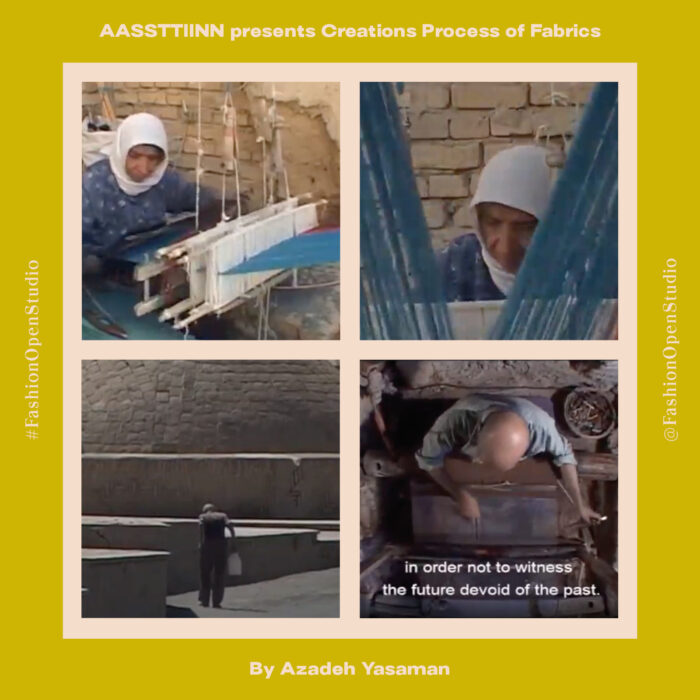
We were invited to follow the story of looms and weaving with Azadeh Yasaman, to upcycle at home with Foje, to learn embroidery techniques to refurbish and regenerate our clothing with Sona Asemani and to meet the craftsmen and women behind Sanaz Nataj’s pieces across villages in Iran.
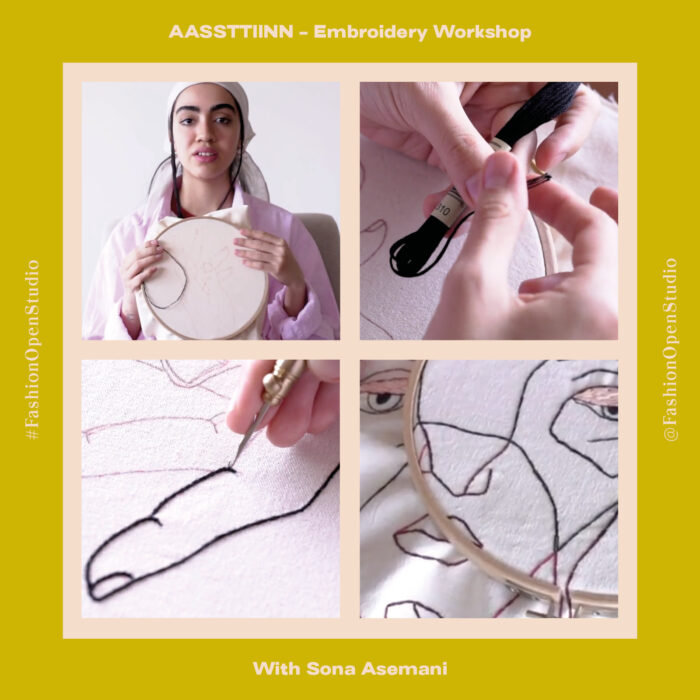
The Fashion Open Studio programme in Iran asked #WhoMadeMyClothes and celebrated the makers, craftspeople, artisans and designers who made them. It asked people to go into their wardrobes and rediscover their clothes, breathe new life into them and find new meaning by upcycling and embellishing them. Fooziye Foroudnia of Foje proclaimed ‘all I have is all I need’, reminding us to look around ourselves while in quarantine and isolation and value what we have.
The Fashion Open Studio Iran films and digital workshops are available on the Aassttiinn website in Persian language with subtitles in English apart from the recordings of Foje’s live upcycling workshops which are available in Persian only.
Portugal
In Portugal the team transformed their planned programme of physical events including a swap market and transparency fair into a full week of digital events hosted on Instagram.
Daily Instagram Live ‘talk shows’ on themes from transparency, alternative consumption and feminism aimed to engage their community in key debates and discussions. This was complemented by DIY tutorials for their community to try at home from customising tote bags using image transfer techniques, to repair and upcycling using stitching and embroidery. The team also coordinated a Haulternative challenge with their community collecting #lovedclotheslast stories which they posted on their feed throughout the week.
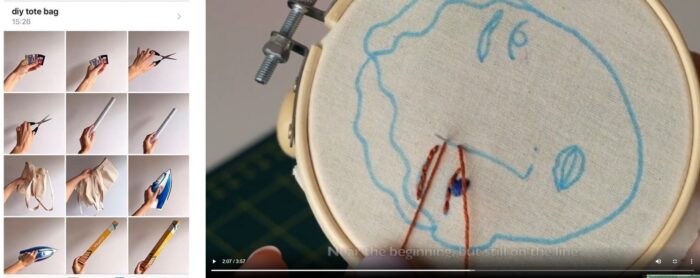
In response to the Covid-19 pandemic Fashion Revolution Portugal also joined a group of partners to create South in Action, bringing together a network production across the south of Portugal to manufacture personal protective equipment for the health service and frontline workers.
Vietnam
Originally planned as a physical exhibition, the Fashion Revolution Vietnam team created a virtual exhibition entitled 80% curated by Ellen Downes, Country Coordinator Vietnam. Of the 75 million people who make our clothes worldwide, 80% are women between the ages of 18 – 35 years old. This virtual exhibition was created in English and Vietnamese in collaboration with the Vietnamese Women’s Museum, illustrator Ellie Shipman, translator Le Kim Thanh, designer Rocío Guerro Parra with support from Fairwear Foundation Vietnam and the Centre for Development and Integration Vietnam. The exhibition aims to reveal what life can be like for women working in garment factories in Vietnam and around the world. You can visit it here in English and in Vietnamese.
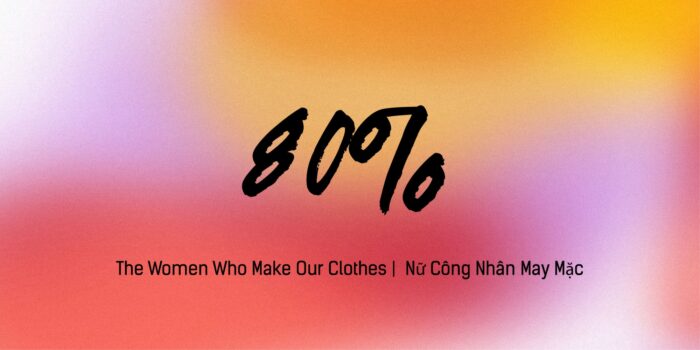
Alongside the exhibition the team hosted three Fashion Open Studio’s to further explore the people and the processes behind the people who make our clothes from the perspective of Vietnamese designers and brands who have been leading voices in environmental and social sustainability. Through three Instagram Live sessions and two specially created films the people behind Vietnamese brands: Tamay & Me, Moi-Dien and Kilomet109 showed us around their studios, explained their processes and ways of working and shared the stories behind their work with us.
Ellen Downes and Ellie Shipman’s film took us behind the scenes in Sapa where Tamay of Tamay & Me is based to show how the community of artisans have created a brand based around Mien embroidery and vintage textiles and was followed by a conversation with co-founder Hannah Cowie; Tom Trandt invited us on a studio tour of his Ho Chi Minh City studio for a sneak peak at the development of his new collection; and Fashion Revolution Vietnam Ambassador Vu Thao invited us into her studio for an intimate in-conversation about her 100% Vietnamese slow fashion brand Kilomet 109.
These projects would not have been possible without the creativity and dedication of all team members in Fashion Revolution Cambodia, Fashion Revolution Greece, Fashion Revolution Germany, Fashion Revolution Iran, Fashion Revolution Portugal and Fashion Revolution Vietnam and their partner organisations.




